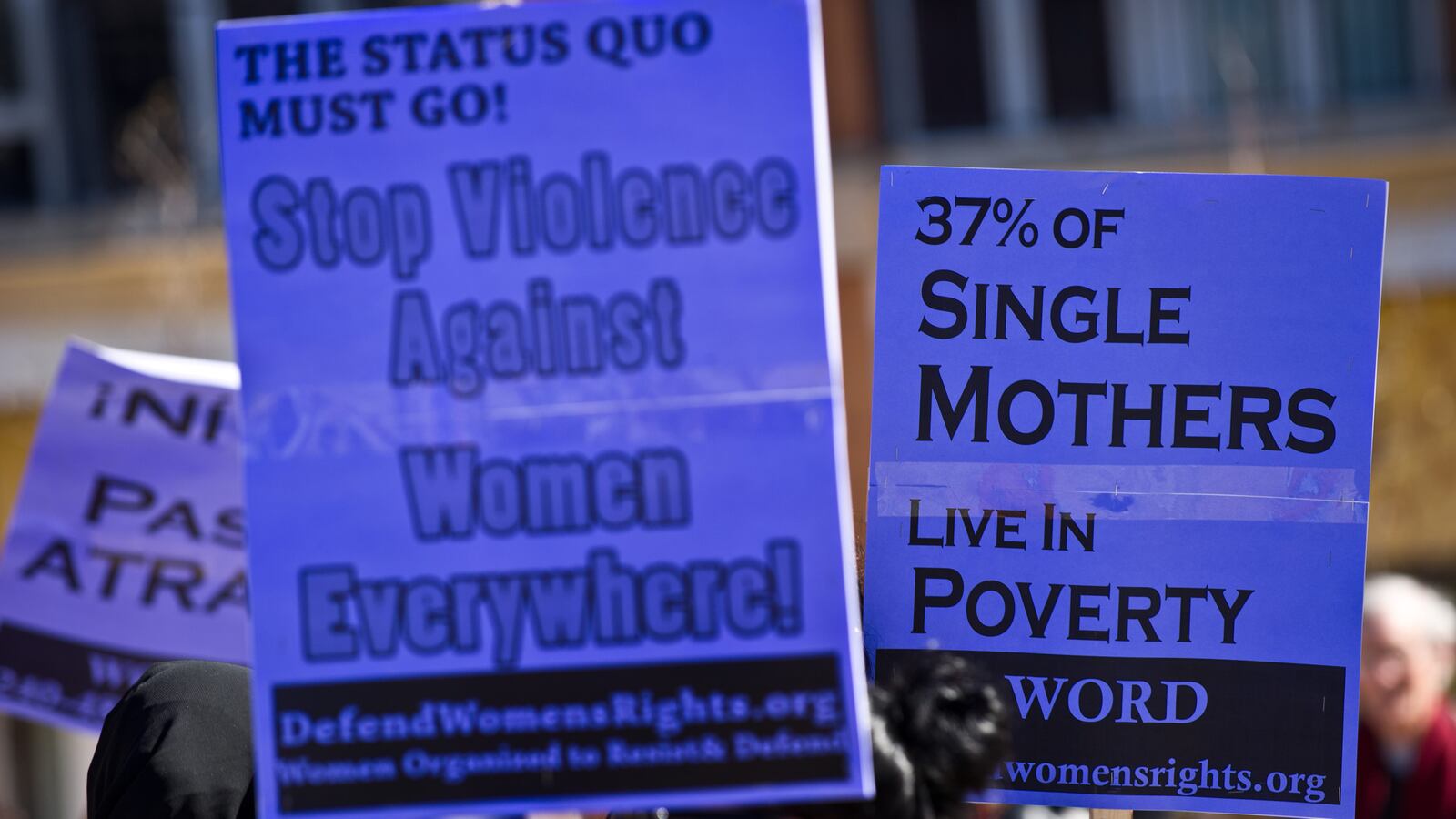A strong liberal and a feminist, Illinois Democrat Jan Schakowsky worked hard to win bipartisan backing for the International Women Against Violence Act. It was touch and go until Thursday morning, when just hours before she was scheduled to introduce the bill on the House floor, two upstate New York Republicans, Reps. Richard Hanna and Chris Gibson, agreed to sign on to the legislation known as I-VAWA, which Schakowsky says “would make ending violence against women a pillar in foreign policy… to be considered in all things that we do.”

Schakowsky calls Hillary Clinton as secretary of State “a major force in making sure the mindfulness about women was there,” but says statutes are needed to make permanent the Office for Global Women’s Issues in the State Department, led by an ambassador-at-large, and to create a senior coordinator for gender equality and women’s empowerment at the U.S. Agency for International Development.
In a political climate where the votes of women are prized, you’d think I-VAWA would be a no-brainer. Crafted in part to meet Republican demands, the bill calls for no new federal money. Still, it raises alarm bells. “One of the things Republicans are hesitant about is seeing health and women in the same sentence,” Schakowsky told The Daily Beast in an interview Wednesday evening in her office. “They think it’s about reproductive rights and abortion. Most are not even supportive of contraceptives abroad, which is astounding,” she added.
Another buzzword that arouses GOP suspicions: empowerment. “I was once told that meant empowering women to have abortions,” says the aide who was working on securing Republican backing.
Schakowsky recalls that when she entered Congress in 1999, there was an active bipartisan pro-choice caucus. Now only one of those Republicans is left—New York’s Hanna—yet she remains convinced that the recent raft of antiabortion measures around the country and in Congress represent a “last gasp” by the GOP. “I honestly think this is desperation, that they have lost the war on these social issues.”
Heartened by the support she got from Hanna and Gibson,—the only two Republicans who broke with their party to vote against delaying the Affordable Care Act in the leadup to the government shutdown—Schakowsky says, “If we can just break through to a couple of them and break the logjam, they can all hold hands together and come on the bill.”
There is a correlation between the status of women and the level of violence, and I-VAWA would identify between five and 20 countries where violence against women is severe, making them eligible for training programs and assistance. “If I were just talking politics, we want Republicans to look for things that reach out to women and reflect women’s priorities. This isn’t such a big stretch to go internationally,” she says, noting that a minority of House Republicans joined Democrats to pass the Violence Against Women Act in February, the domestic version of the I-VAWA.
“I’m hoping this isn’t a ‘gotcha’ bill,” she continues, “that it falls more into the Violence Against Women category as something Republicans should be able to support. I’d rather it not be a defining issue, but I can’t read their minds anymore.” As we neared the end of the interview, Schakowsky asked, “Have you ever put on a burka?” She described a burka that she keeps at home that she invites visitors, women and men, to try on so they know what it’s like. She describes the garment as sky blue polyester with a rectangular mesh opening for the eyes, which doesn’t allow peripheral vision. “It’s such a feeling of disappearing,” she said. “But I can imagine how you can feel safe in it at the same time.”
The I-VAWA failed to get the necessary votes in 2010, so this is the second attempt to rally support in the House. Asked how she came to embrace this cause, Schakowsky cites the women and children she sees, and their great needs, when she travels around the world, to Afghanistan, India, and Congo. “And when I speak to women here—the most empowered women in the world—I tell them our sisters need us to stand up for them and think about them.”
With the House wrapping up for the holidays and leaving lots of unfinished business behind, Schakowsky says, “Nothing will happen this year; our goal would be within this Congress.” The current Congress continues through next year, when the votes of women are expected to be decisive in the midterm elections, and lawmakers may have a change of heart come next summer and fall about legislation with such obvious appeal to women voters.





